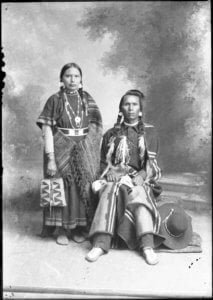Yakima Malcontents of 1856
One thing, of course, is to be remembered – there were all degrees of offending, from the active hostile to the almost neutral, just as there are in every Indian war. The worst of them all were Kamiaken, his brothers Skloom and Shawawai, Owhi and his son Qualchian, the Yakima malcontents of 1856, who had been roaming among the tribes, exciting discontent and committing depredations where they could Kamiaken was the most influential of them all. He was a man of unusual stature and remarkable strength. No man in the tribe could bend his bow. He was rated the best … Read more

